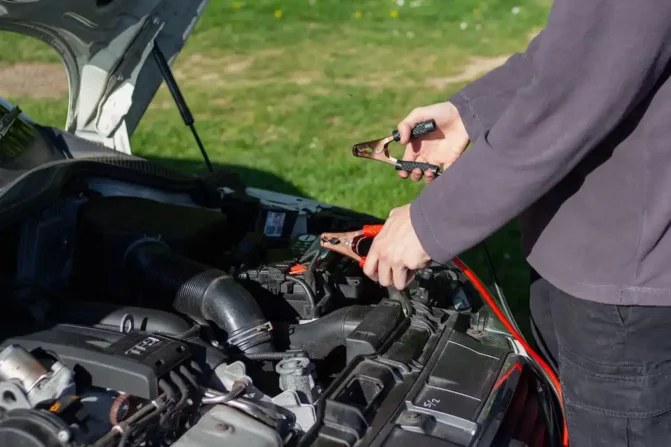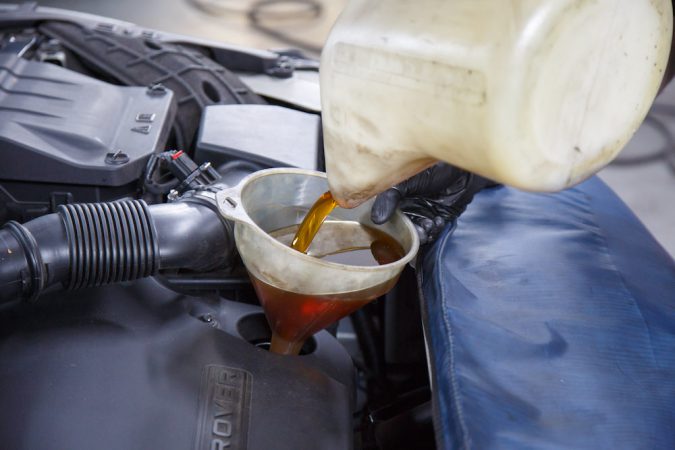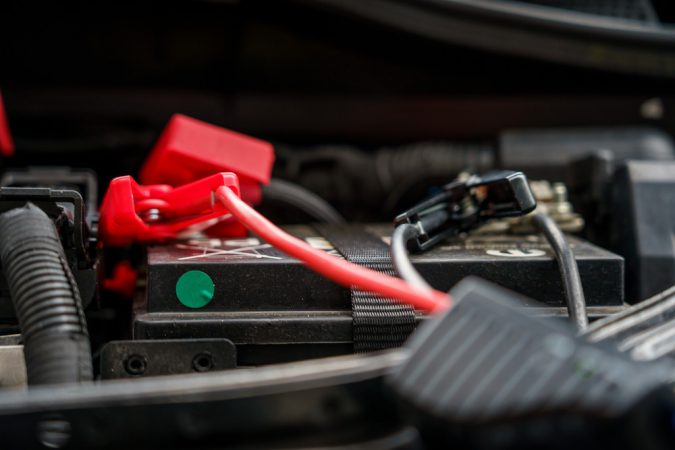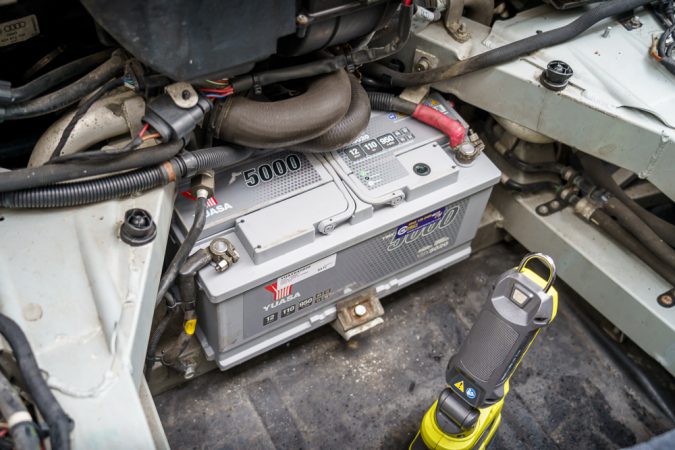Have you installed a new alternator on your car? But how come is the new alternator not charging the battery? This is a really unfortunate situation that you are having since you paid so much money for a new alternator that doesn’t work and your battery is still empty. The good thing in this situation is that the alternator could be good but something else is wrong with your car. And what is it? Let’s find out.
- What Is An Alternator?
- Why Does An Alternator Go Bad?
- How To Fix A Faulty Alternator?
- Final Conclusion
Charging the battery is a crucial thing in internal combustion engines. The batteries in cars are usually made only to start the vehicle and they do not like it when the energy is drained from them all the time. It’s up to the alternator to recharge your battery always to the max level when you are driving your car.
If your battery is down on charge and doesn’t have the right voltage, it can be tricky to start the vehicle. That’s because your car needs 12V of power to start. A good battery should always have 12 to 13.5V of juice if you want to crank your engine over without any issues and the car should start right up. But when the alternator is not charging you might have a problem. That’s why we are going to help you out.
In this article, we are going to learn what is a car alternator and how does it work. Then, we are going to discuss the probable causes of why the new alternator not charging battery. After we are going to discuss the possible solutions to this problem. So, without further ado, let’s discuss.
Alternator
The alternator is the component that produces electricity in your vehicle. So, how come? Isn’t the battery that produces electricity in my vehicle?
No, it’s not, the alternator is the one that makes the electricity, while the battery is the component that stores the electricity. The alternator basically recharges the battery to give you a charge when the car is not running. Without the alternator, you won’t be able to recharge the battery.
The alternator is somewhat of a generator that produces power. But how does the power come into the generator? How it generates electricity is simple to explain. The alternator is connected to the serpentine belt, or also known as the accessory belt. This belt starts to spin when the engine turns on.
As the belt is spinning, it powers the alternator. The alternator converts this rotational energy into electricity. This electricity goes to the battery and from there is disbursed where there is a need for power. For example, the radio, dome lights, and clusters. All these components are powered by the energy that is created inside of the generator.
The battery by itself can run these components since there is a good amount of juice that is stored in the battery. But this energy is finite and when the battery runs out of electricity, your engine and accessories will stop. That’s why if your alternator is broken you should repair it.
But why the alternator goes bad? Well, we are going to cover that next. After that, we will discuss why a new alternator isn’t charging the battery happens as well. Since there are a lot of owners that install new alternators and their alternators are not working properly.
What Causes An Alternator To Go Bad
The alternator can go bad and cause all sorts of issues inside the vehicle. The biggest sign of a new alternator not charging the battery will be the empty battery. The battery will constantly be losing power and you will have trouble starting the car. This can be frustrating to deal with, but what can cause a new alternator not charging the battery to occur? Let’s find out.
New Alternator Not Charging Battery, Causes #1: Worn Out Internal Components
If the alternator is a “new” refurbished product, it could be causing these problems to appear. This is the case because there are a lot of companies that offer refurbished alternators and in fact, they are not that well refurbished.
Some shops are replacing a few components inside and they are not testing these alternators at all. The symptoms of a broken alternator will show up as soon as you install the “new” alternator in your car. And this will include a new alternator not charge the battery and low power inside of the cabin. You will think that the dome lights and other components will shut off all of a sudden.
That’s why you need to be aware before getting one of these refurbished alternators. The bearings could be changed and the alternator will be refreshed. But the important pieces that are producing the power are not. If they are damaged, the alternator will not be making any power.
If the brushes are not refreshed, then you probably going to have some issues with this alternator. It doesn’t matter that it spins. But if it grinds and doesn’t work properly you will have all sorts of issues.
That’s why before getting a new alternator, make sure that you get one from a place that offers a warranty on it. A good warranty period will guarantee that you are getting the right product and that it’s going to last for a long time in the future. Avoid getting these alternators as refurbished items online. Because you don’t know what you are going to get.
New Alternator Not Charging Battery, Causes #2: Oil Spillage
Oil spillage can also make a new alternator not charging battery problem appear and ruin your day. This is the case because if you have an oil spillage on the alternator, the alternator may get damaged.
Imagine that you are filling up the oil, and suddenly a splash of oil hits the alternator. At first glance, this may look like not a big deal for you.
But when you start up your car and you drive the car for a few miles, this oil will start to damage the internals of the alternator. The oil will stick to the components and over time will get thicker. Then will start to attract dust particles. This contamination of oil and dirt is going to clog the alternator and the brushes can be damaged and it can also prevent them from delivering the right amount of power. This results in a new alternator not charging battery issue appear.
The only solution for this problem is dismantling the alternator completely into pieces and giving it a good cleaning. And even though you clean the alternator, it can still not deliver the right amount of electricity.
In this situation, the only solution will be replacing the alternator with a new one. This will guarantee that your alternator is going to function properly and your battery will be charged.
This issue should concern you if your engine is spilling oil on a regular basis as well. Several components can leak out oil and damage your alternator. Also, some engines are badly configured and the alternator is mounted in some places when there are frequent oil leaks, and these vehicles have more troubles with these types of issues on the alternator.
New Alternator Not Charging Battery, Causes #3: Water Damage
Water damage is another cause why your new alternator not charging the battery to happen. This is the case because there is water damage to the alternator.
The alternator does not like fluids. It doesn’t like oil and it doesn’t like water as well. Water is much worse in this case because water causes rust to develop and ruin the internals of the alternator.
If you have water damage on the alternator, you can expect the alternator’s internal components to short. The electricity that’s created inside of the alternator and the water is a conductor. This can ruin the whole alternator and prevent it from properly working again.
But how water can get in the alternator? There are two ways how water can get inside of the new alternator. One way is by leaks from your cooling system. If your coolant hose fittings are bad, then you know that there will be leaks. These leaks can enter the alternator. As soon as the coolant gets into the alternator, it will cause it to malfunction. Also, another way coolant can get inside your alternator is by leaks from the engine head gasket.
The head gasket can leak from the outside as well, and the alternator is mounted right below the engine head. So, if your car has developed a gasket leak right on top of the alternator, it could possibly damage it.
Another possibility is water splashes. These splashes can occur if you drive in deep water or if you are missing your splash shields (or a Toyota Highlander catalytic converter shield) that are mounted underneath the car. So, the water has easy access to the internal components of your engine.
These situations can cause the problem of the new alternator not charging the battery to appear, that’s why you need to be aware.
New Alternator Not Charging Battery, Causes #4: Jump-Starting The Car The Wrong Way
Jump-starting your car from another car can also damage your alternator. This is the case because if you mismatch the cables by accident, there will be a possibility that your alternator can get destroyed.
This bad current will fry the alternator and will deem it inoperable. The only solution will be to get a new alternator and replace the alternator that you have damaged.
That’s why you should always pay attention when you jump-start your car. Because not only that the batteries and the alternator, but the entire system will be affected. Considering how much technology is packed in today’s cars, the damage is going to be expensive.
When you jump-start your car, you have two cables. A red one and a black one. The red cable goes to the positive terminal and the black cable is negative. First, attach the cables to the car that you are using to draw energy from it. Then, connect the car that you want to jump-start.
By doing this, you can be sure that no damage will be created and your alternator and all of the electronics will be protected from an excessive power surge.
New Alternator Not Charging Battery, Causes #5: Alternator Belt Overtightened
If you replace your alternator with a new one and the new alternator not charging the battery issue starts to appear. There is a big chance that they have overtightened the belt that is powering the alternator.
This belt is also called a serpentine or accessory belt. This belt basically runs all the accessories like the AC, water pump, oil pump, and as well as the alternator.
The belt should be tightened up to spec. If the belt is too tight, it can cause damage to the bearings that are inside of it.
These bearings are basically rotating the inner shaft of the alternator. They need to be in perfect health to allow the alternator to spin properly and without any hiccups.
If the bearings are done, you can also hear some noises that are coming from the alternator. These noises will sound like metal is grinding with metal.
This has to be checked immediately, and your alternator should be either rebuilt or replaced. If you have a shop that has a lot of experience in rebuilding alternators, it is a good idea to visit them and see if they can help out with your alternator.
New Alternator Not Charging Battery, Causes #6: Alternator Wires Not Connected Well
It is also a good idea to check your wiring as well. Since you have installed a new alternator on your vehicle, maybe the connections that go from the alternator to the battery are messed up and they do not power the battery.
Also, if the wiring is pretty old, it is worth replacing it with a new one. By doing this, you will also reduce the risk of fires in your vehicle.
Your car be safer to drive and the new alternator not charge battery problem will be solved and you will not have any issues in the future.
Just take note that you should let someone else do this job for you. That’s because the electrical wiring can be dangerous. This is the case because there is a lot of power that goes from the alternator to the battery.
If the battery is not connected well with the alternator, a fire is very likely to be caused and damage the whole vehicle.
In case of a fire, if you don’t have a fire extinguisher, it is very likely that the fire is going to destroy your car. And possibly even hurt you, that’s why it is not worth the risk of doing this work by yourself if you are inexperienced.
New Alternator Not Charging Battery, Causes #7: A Dead Battery
A dead battery can also be one of the culprits that your alternator doesn’t charge the battery. If the alternator is working at full potential and your battery just keeps getting empty, it means that your battery is not holding the power.
This can be checked with a multimeter tool. A multimeter is a tool that can measure electric current, voltage, and resistance.
For this purpose, you will need the voltage meter. Place one probe on the plus and the other on the minus. Then, see the right output. The output for a good battery should be around 12 to 13.5V.
This means that your battery is good and you don’t have to worry about anything. If the battery has lower power for example 8V or 10V, it means that this is not enough and your battery will constantly struggle to keep up powering the components.
The lack of power is mostly caused by dead cells inside of your battery. If one or two cells are dead, you can expect that the battery will not function properly.
That’s why you have to replace the battery with a new one. A new battery with 12V is around $100. It’s not cheap, but it’s going to solve your problem with the new alternator not charging the battery. After replacing the battery, you should not experience this issue ever again.
New Alternator Not Charging Battery, Causes #8: Installed The Wrong Alternator
There is still a chance that you installed the wrong alternator on your car. Not all alternators output the same power and maybe this is the reason why your battery is empty.
You need to check the part number always before you make a purchase. This is needed to make sure that everything is up to spec for your system and that you will not experience some issues like this.
Check the part number with your alternator and see your previous alternator if they are a match. If they aren’t, you can look at your culprit in the new alternator not charging battery issue in this new alternator.
New Alternator Not Charging Battery, Causes #9: Blown Fuse
A blown fuse in the fuse box can also prevent the alternator from charging your battery. There are some important fuses in your fuse box and you need to inspect them all to see if there is a burnt fuse.
How can I find the right fuse? When you remove the fuse box cover, almost on every car there is a fuse box scheme. This scheme will basically tell you which fuse is powering each component. For the alternator, you need to check the scheme and look for the fuses that are in charge of the alternator. If there are any burnt fuses, you have to replace them and the problem will probably be solved.
New Alternator Not Charging Battery, Causes #10: Parasitic Loss
A parasitic loss can also make you think that your alternator is not charging the battery. This is the case because if there is parasitic loss, your battery will get empty and you will not have a clue why is this happening. This will result in confusion on your part, and you will think that the alternator is the issue.
The best way to solve this problem is to take your car to a mechanic who focuses on finding electrical issues in cars. That’s since this parasitic loss can be very tricky to diagnose and you will need to have skills to find what is causing it.
A small hint: If you recently were messing with the wiring, you should double-check if you connected everything well. I’m saying this because many owners mess with their cars and they mismatch the wires and whatnot. That’s why when you are messing with wires you should always check twice.
New Alternator Not Charging Battery, Causes #11: Poor Ground Connection
One overlooked culprit when it comes to alternator problems is a bad ground connection. Every electrical circuit, including the alternator, needs a clear path back to the battery, which is typically provided through the vehicle’s body or frame. If this connection becomes corroded, loose, or disconnected, the alternator may not be able to send power back to the battery, making it seem like it’s not functioning.
To address this, regularly inspect the ground connections for corrosion and make sure they’re tight. Cleaning off any rust and ensuring a snug connection can make a world of difference in your electrical system’s performance.
New Alternator Not Charging Battery, Causes #12: Voltage Regulator Issues
The voltage regulator plays a crucial role in ensuring your battery gets the right amount of power. If it malfunctions, your alternator may either send too much or too little power to the battery, leading to various issues. A faulty voltage regulator might send excessive voltage, causing the battery to overheat or become overcharged. On the flip side, it might not send enough, leaving you with a battery that’s undercharged.
If you suspect this is the issue, a mechanic can test the voltage regulator to confirm. Replacement is usually the best option if it’s found to be defective.
New Alternator Not Charging Battery, Causes #13: Age and Wear of the Vehicle
Remember, every vehicle has a lifespan. As cars age, their electrical systems, including the wires connecting the alternator to the battery, can degrade. These aging wires might not carry current as efficiently, leading to lower charging efficiency from the alternator.
While regular maintenance can prolong the life of your vehicle’s components, sometimes parts just wear out due to age. If you’re driving an older car and experience alternator problems, consider inspecting the entire electrical system.
New Alternator Not Charging Battery, Causes #14: External Factors and Maintenance Habits
Your maintenance habits and external conditions play a role in your alternator’s health. Driving in harsh conditions, like extreme heat or cold, can wear out your alternator quickly. Similarly, if you often drive on bumpy roads, the jarring can affect the alternator’s components.
To avoid this, try to keep your vehicle in a garage during extreme weather and follow a consistent maintenance schedule. This proactive approach can extend the life of your alternator and other critical car parts.
New Alternator Not Charging Battery, Causes #15: Electronic Add-ons and Upgrades
In our tech-savvy era, many people add extra electronic devices or upgrade their vehicle’s systems. Whether it’s a booming sound system, additional lights, or other electronic modifications, these can strain the alternator. If the alternator isn’t equipped to handle the increased demand, it might struggle to charge the battery adequately.
Always consider the power demands of any electronic addition to your car. If necessary, consult a professional to ensure your alternator can handle the extra load.
In conclusion, while a new alternator not charging the battery can be frustrating, understanding potential causes can help you diagnose and address the issue. Regular maintenance, being aware of how external factors affect your vehicle, and making informed decisions about upgrades will ensure your car’s electrical system runs smoothly for years to come.
Alternator Repair
The only way to fix this problem with the new alternator not charging battery is to diagnose the problem. So, to diagnose, you have to have a multimeter tool that can measure electric current.
You need to check both the fuse box for burnt fuses, the alternator, and the battery. As well as the wiring that goes from the alternator to the battery.
The best thing you can do first is to test the battery and alternator with a multimeter. If you don’t find any problems with both of the components, you should take your car to a car electrician and let him deal with the issue.
There are experienced technicians who could find a problem in a matter of minutes. On the contrary, an inexperienced technician will take years to discover the problem and even that may not be the right solution.
That’s why you need to take your car to a place that has experienced mechanics and they will deal with this issue quickly and affordably.
Facts: Reasons Why Your Car Is Dead
- An alternator charges your car battery as you drive and powers up your devices like the radio.
- Corrosion from the battery terminals is one of the worst reasons your alternator won’t charge the battery.
- Oil spillage can affect your alternator over time, clogging its inner parts and leading to poor performance.
- An alternator fuse can blow up due to excess power surge or old age, causing a lack of current flow from the alternator to the battery.
- A dead or poor battery can cause the alternator to fail to power the car, and the engine may stall or shut down quickly.
- A fault in the engine control unit (ECU) can cause the battery to drain, the engine to stall, or the car not to start.
- Poor jumpstarting of the car, using mismatched cables, can burn the alternator and fry car accessories.
- A dead or poor serpentine belt can prevent the alternator from running, causing the car’s accessories to malfunction and make rattling or whining noises.
- A fault in the voltage regulator can prevent the battery from getting power and cause lights to dim or over-brighten.
- Age, poor wiring, and burnouts and leaks from diodes can all lead to the alternator’s failure to charge the battery.
- To fix an alternator that isn’t charging, you can replace the alternator, get a new battery, change the ECU or fuses, fix or replace the serpentine belt, adjust the voltage regulator, correct the wiring, clean the battery terminals and regulator, or get new alternator diodes.
In Conclusion…
In this article, we have covered a lot. We covered what is an alternator and how does it work. Then we have covered all of the reasons why a new alternator not charging battery issue appears.
The alternator can either have internal damage caused by oil or water spillage. Or, there is a problem with your wiring that goes from the alternator to the battery.
Other possibilities as we mentioned were blown fuses, and parasitic loss from some of the components in your car. And also, there’s a big possibility is that you have a bad battery. The best thing you can do is to test the battery and see if it’s good. Knowing this will make you sure that the battery is good and you can test other components if they function properly.
But because it is a sensitive job, that requires a lot of precision. The best thing is to look for an electrician that will diagnose the problem for you. You’ll have to pay quite a bit, but you can be sure that you will not have any problems later.




